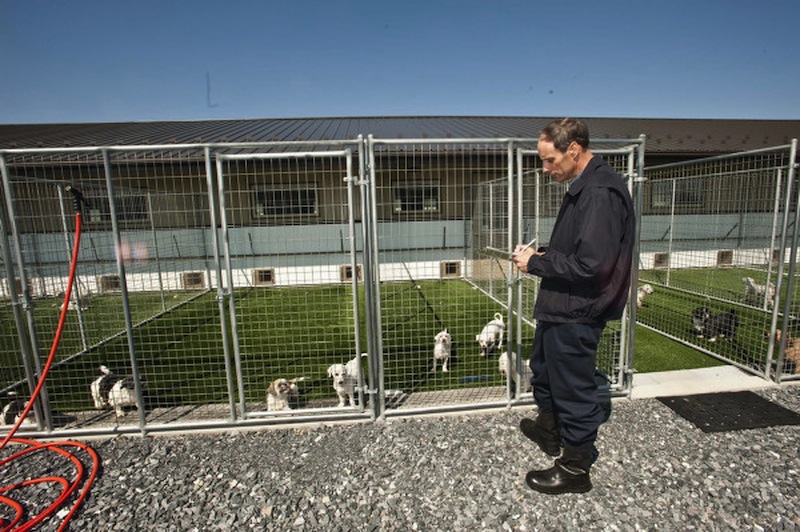WASHINGTON (AP) — The Agriculture Department is cracking down on dog breeders who sell puppies over the Internet, issuing new regulations that will force them to apply for federal licenses.
The rules announced Tuesday would subject dog owners who breed more than four females and sell the puppies online, by mail or over the phone to the same oversight faced by wholesale animal breeders.
Many breeders who run their businesses online have skirted federal oversight by classifying themselves as retail pet stores, which are exempt from licensing requirements. Commercial pet stores aren’t required to have licenses because buyers can see the animals before they buy them and decide whether they appear healthy and cared for. But that’s not the case when buying over the Internet.
The idea behind the new rules, says USDA’s Kevin Shea, is that either government inspectors or buyers see the animals with their own eyes before they are sold.
Shea, administrator of the USDA’s Animal and Plant Health Inspection Service, says the agency is responding to a 2010 USDA inspector general’s report that uncovered grisly conditions at so-called “puppy mills” around the country. The report recommended that the department tighten the animal welfare laws — written more than four decades ago, long before the advent of the Internet — to cut down on unscrupulous breeders.
In addition to finding dirty, bug-infested conditions at many breeding facilities, inspectors cited numerous reports of buyers who received animals who were sick or dying.
The new rules, first proposed last year, would ensure that most people who sell pets over the Internet, by phone or mail order can no longer do so sight-unseen. Sellers either must allow buyers to see animals in person before they purchase them or obtain a license and be subject to inspections by the Animal and Plant Health Inspection Service.
The rules are targeted to dog breeders but could affect breeders of other animals too. The Agriculture Department estimates that up to 4,640 dog breeders could be affected by the rule, along with about 325 cat breeders and up to 75 rabbit breeders.
Animal protection groups cheered the move. Wayne Pacelle, president of The Humane Society of the United States, said he has been working on the issue for almost two decades. While mail-order dog sales were a problem before popular use of the Internet, online sales have made the problem much worse, he said.
“There are hundreds of thousands of dogs languishing in small wire cages, denied vet care and exposed to the elements that literally had no protection under federal law,” Pacelle said. “This turns that around.”
Small-size breeders have lobbied against the changes, saying the rules could regulate them out of business. USDA’s Shea says the department set the minimum of four breeding females to ensure that smaller sellers would be able to continue offering puppies.
“People who have generally been thought of as ‘hobby breeders’ continue to be exempt,” Shea said.
Shea said the licenses will cost $750 or less and complying with the USDA regulations should only be expensive for breeders who aren’t already ensuring their animals have adequate housing and medical care.
The American Kennel Club said it is dismayed by the rule, which is “overly broad and will do more damage than good,” said spokeswoman Lisa Petersen.
The group argues that the term “breeding female” is too vague and could subject some sellers to the rules even though some of their dogs aren’t actually breeding. The club said breeders are also concerned that the rules are too specific as to how dogs should be housed, and could prevent some small breeders from keeping dogs in their homes.
___
Find Mary Clare Jalonick on Twitter at http://twitter.com/mcjalonick
Copyright 2013 The Associated Press. All rights reserved. This material may not be published, broadcast, rewritten or redistributed.










